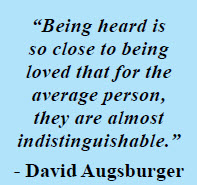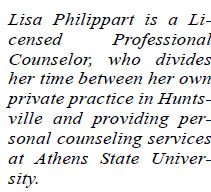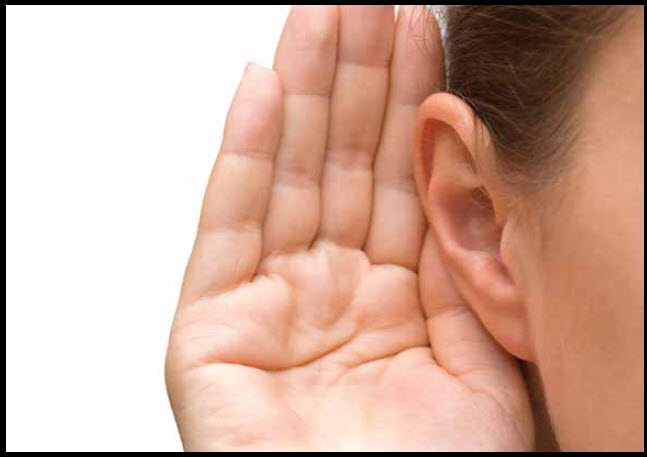 By: Lisa Philippart
By: Lisa Philippart
Being a good listener is about what you do less of, not more of. Truly good listeners don’t necessarily do more of anything than the rest of us. Instead, they’re exceptionally good at eliminating unhelpful tendencies and habits that get in the way of genuine listening and connection. If you want to be a better listener, try to identify and eliminate these bad habits:
Stop trying to “win” conversations. If you treat conversations like competitions, you’re bound to lose no matter what. Ask yourself, “Is this conversation about being helpful and supportive or making myself feel good?” By briefly checking in with yourself before a conversation, you give yourself a jolt of self-awareness. And this self-awareness is often enough to shift you out of a competitive mindset and into a helpful one. Many people struggle to be good listeners because they are emotionally insecure. They approach conversations with an unconscious goal of winning and feeling justified and good about themselves. For better conversations, check your ego at the door. Instead of a competition to be won, start viewing conversations as acts of service that aren’t about you at all. And when you start approaching conversations this way, your ability to listen well will improve immensely.
 Stop focusing on the problem; instead focus on the person. Just because someone has a problem doesn’t mean they are a problem. Many of us are problem solvers at heart. We spend all day identifying problems, then using our minds to come up with creative solutions to them. The trouble is that in certain situations, problem-solving can backfire. Much of the time, when people want to talk, they don’t really want someone to solve their problems. They just want to feel understood. The best conversations are about connection, not information! A good listener resists the urge to solve others’ problems or give advice at all…they simply listen and offer support. Focus your attention on the person sitting next to you…how he feels or what the world must look like through his eyes right now. When you do, you subtly communicate that whatever they are going through, they’re okay. You are giving them a far more valuable gift—the gift of validation.
Stop focusing on the problem; instead focus on the person. Just because someone has a problem doesn’t mean they are a problem. Many of us are problem solvers at heart. We spend all day identifying problems, then using our minds to come up with creative solutions to them. The trouble is that in certain situations, problem-solving can backfire. Much of the time, when people want to talk, they don’t really want someone to solve their problems. They just want to feel understood. The best conversations are about connection, not information! A good listener resists the urge to solve others’ problems or give advice at all…they simply listen and offer support. Focus your attention on the person sitting next to you…how he feels or what the world must look like through his eyes right now. When you do, you subtly communicate that whatever they are going through, they’re okay. You are giving them a far more valuable gift—the gift of validation.
 Stop invalidating other people’s feelings. A sure-fire way to derail a conversation and build a reputation as a terrible listener is to get judgmental about other people’s feelings. Whether or not you think someone’s feelings make sense, the experience of that feeling is always perfectly valid. Your job as a good listener is not to pass judgment on how rational someone’s fears or frustrations or any other feelings are; your job is to validate these feelings. Your job is to help the person struggling to know that whatever they are feeling is legitimate, no matter how painful or how irrational. If you want to be a good listener, never treat feelings as problems. Try acknowledging how hard it must be to feel that way. As a good listener, your position is to be empathetic, not rational.
Stop invalidating other people’s feelings. A sure-fire way to derail a conversation and build a reputation as a terrible listener is to get judgmental about other people’s feelings. Whether or not you think someone’s feelings make sense, the experience of that feeling is always perfectly valid. Your job as a good listener is not to pass judgment on how rational someone’s fears or frustrations or any other feelings are; your job is to validate these feelings. Your job is to help the person struggling to know that whatever they are feeling is legitimate, no matter how painful or how irrational. If you want to be a good listener, never treat feelings as problems. Try acknowledging how hard it must be to feel that way. As a good listener, your position is to be empathetic, not rational.
Stop ignoring your own feelings. If you are oblivious to how you’re feeling, it’s only a matter of time before you say something stupid. We all like to think that our words and actions are motivated by reason and objective logic, but this is rarely the case. More often than not, what we do and what we say is motivated by how we feel (or want to feel.) Giving someone advice about their anxiety is often motivated by our own discomfort with that person’s anxiety. We say things to make ourselves feel better. Truly great listeners are selfless in conversation. And the only way to resist the pull of your own emotions and stay focused on the other person is self-awareness. Good listeners are compassionate with themselves just as much as they are with others.
(Hat tip to Nick Wignall.)
By: Lisa Philippart
Licensed Professional Counselor







